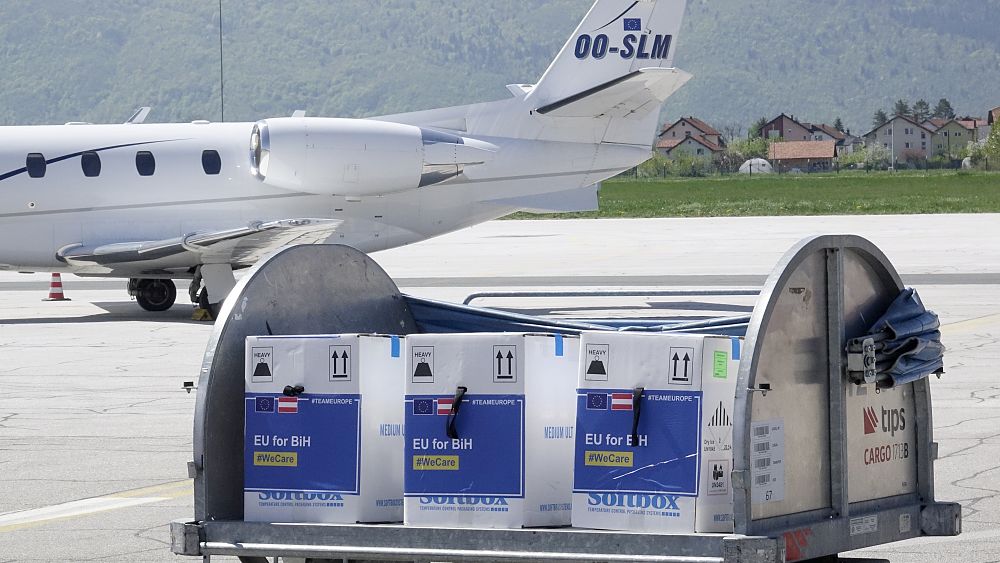The European Union has begun delivering hundreds of thousands of coronavirus vaccines to non-EU countries in the Western Balkans.
Last month, the European Commission announced that 651,000 Pfizer/BioNTech doses will be delivered to Serbia, Bosnia, North Macedonia, Montenegro, Albania, and Kosovo in weekly instalments from May to August.
The vaccines are funded from a €70 million package adopted by the European Commission in December.
The first batch of 1,170 jabs arrived in Belgrade on Monday, the European commissioner for neighbourhood and enlargement, Oliver Varhelyi, announced.
Most of the Balkan countries have struggled to obtain coronavirus vaccines, except for Serbia, which had launched a successful inoculation campaign mainly thanks to millions of doses of China’s Sinopharm and Russia’s Sputnik V shots.
Both jabs are currently under review by the European Medicines Agency and have not been approved for rollout in the bloc.
But following in the footsteps of Serbia, other Western Balkan nations have been turning to China and Russia for vaccines, as the EU faced criticism for supply delays.
Varhelyi, who travelled to the region to formally deliver the vaccines, rejected such criticism as “vaccine diplomacy”.
“The delivery of the vaccines confirms our continuous commitment to provide support, as we have been doing since the outbreak of the pandemic,” he said on the second leg of his three-day tour.
While in Bosnia on Tuesday, Varhelyi also reiterated a pledge that the EU “will not let down” the western Balkans in their fight against the virus.
The EU-funded vaccines will supplement those provided by the World Health Organization’s COVAX scheme, to which the EU contributes €2.5 billion.
COVAX deliveries to less-developed nations were significantly delayed among shortages of the shots and some Balkan nations have been struggling to purchase COVID-19 vaccines directly from manufacturers.
“We care about this region, their future lies in the European Union,” EU spokesperson Ana Pisonero said Tuesday in Brussels.
“This is why we’re working to support them as best as we can to deal with the pandemic.”







